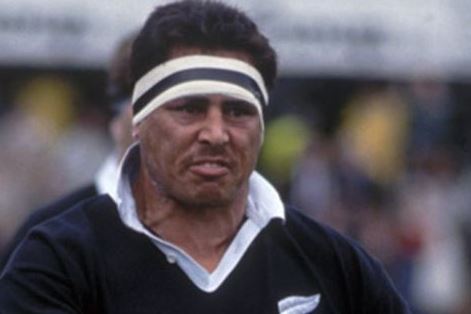Biography
Born on December 13, 1957, in Rotorua, New Zealand, Wayne “Buck” Shelford is of Māori descent, hailing from the Ngāpuhi tribe. His robust build and natural athleticism propelled him into rugby, where he would go on to become one of the sport’s most revered figures.
Teams and Years Played
Shelford’s rugby career began at a local level, playing for his school and club in Rotorua before moving to Auckland, where his professional career took off. His club career in New Zealand was primarily with the North Shore Rugby Football Club, making significant contributions throughout his tenure. Beyond domestic rugby, Shelford shined internationally:
- North Shore (New Zealand domestic competition)
- Northampton Saints (English Premiership)
- Toulon (French Top 14)
Position on the Field
Wayne Shelford was a formidable number eight, a position that is pivotal in both attack and defense. The number eight role allowed Shelford to utilize his strength in scrum engagement and his skills in open play, making him a dual threat on the field.
International Caps
Shelford’s international career was marked by 22 caps for the All Blacks from 1986 to 1990. Despite what seems a relatively short international career, his impact was profound, driving the All Blacks to new heights.
Career Highlights
Wayne Shelford’s career is studded with memorable moments, but a few stand out for their significance:
- Captaincy of the All Blacks: Shelford took over as captain of the All Blacks in 1987, shortly after their first Rugby World Cup victory. Under his leadership, the team did not lose a single match until 1990, cementing a record of invincibility that spoke volumes about his leadership and tactical acumen.
- 1987 Rugby World Cup: Although Shelford was not the captain during the World Cup, he was a key player in the team that claimed New Zealand’s first World Cup victory. His performances were pivotal in establishing the All Blacks as a global powerhouse in rugby.
- Battle of Nantes 1986: Perhaps one of the most brutal matches in rugby history, this game against France saw Shelford suffer a torn scrotum and lose several teeth yet continue playing until being substituted due to a concussion. This incident epitomized his toughness and commitment to the team.
- Revitalizing the Haka: Shelford is credited with restoring the traditional Māori war dance, the haka, to its original fervor and significance for the All Blacks, making it a powerful symbol of New Zealand ru gby.
